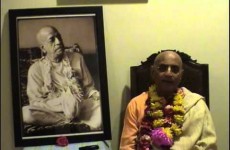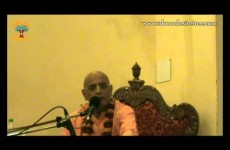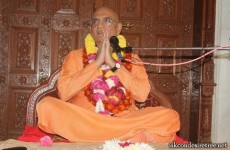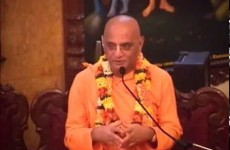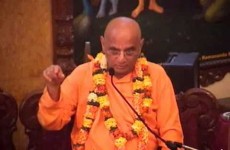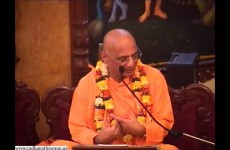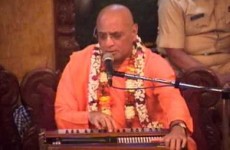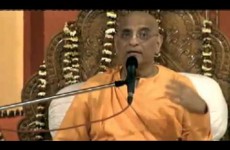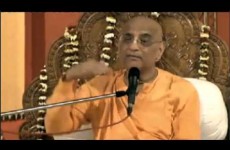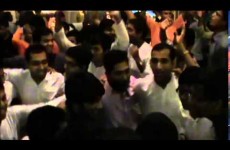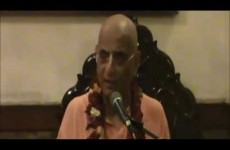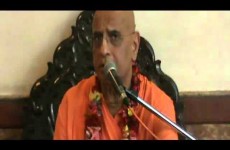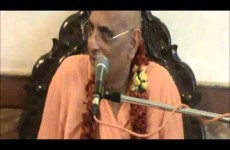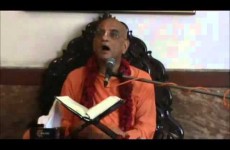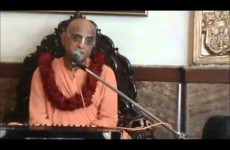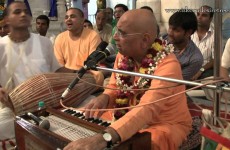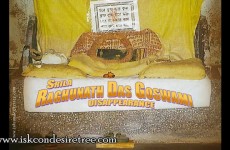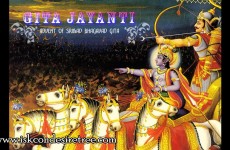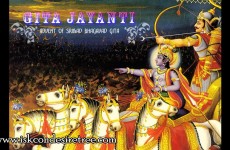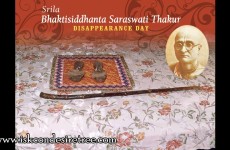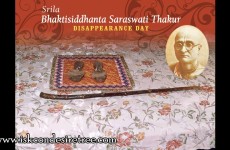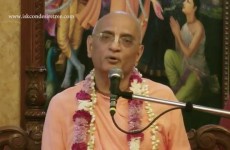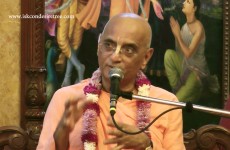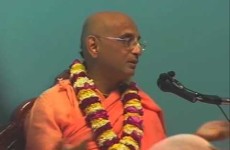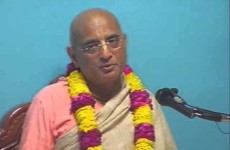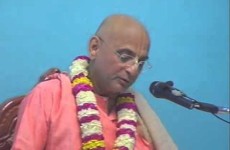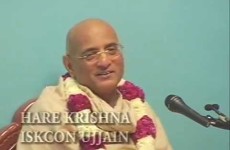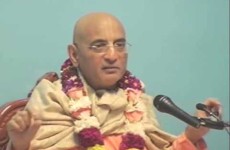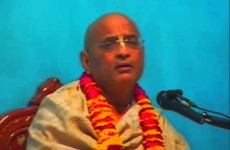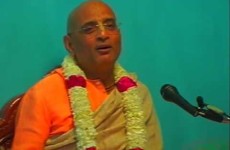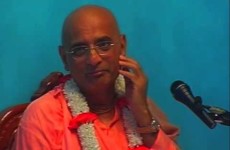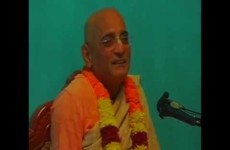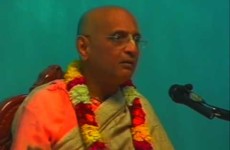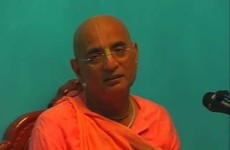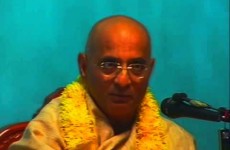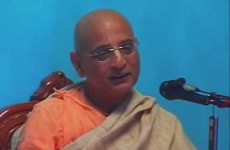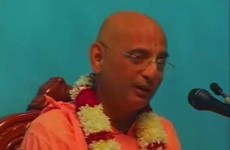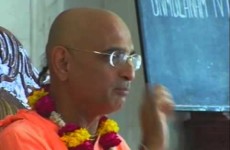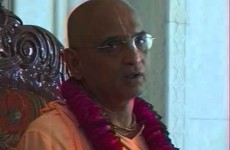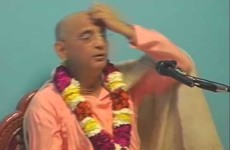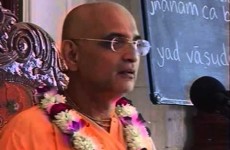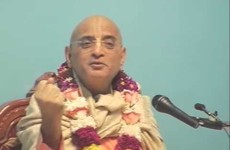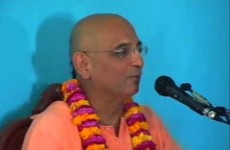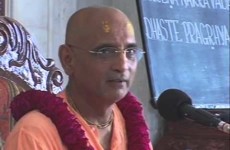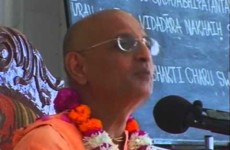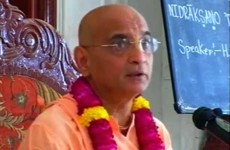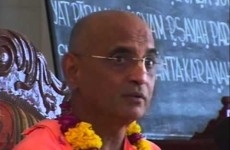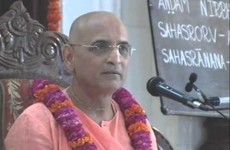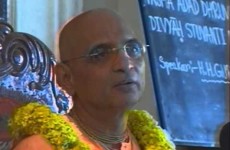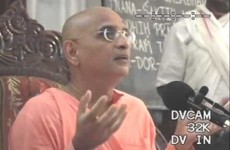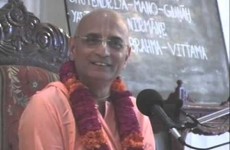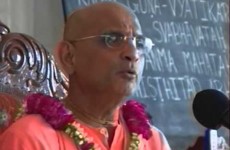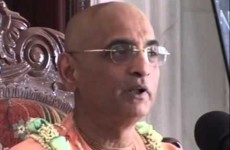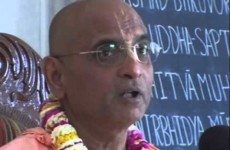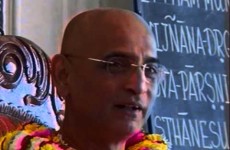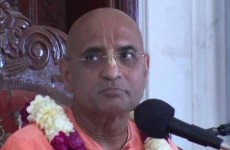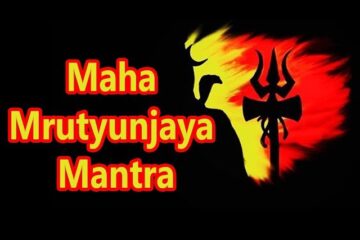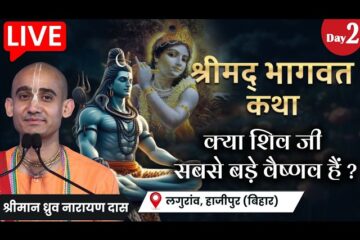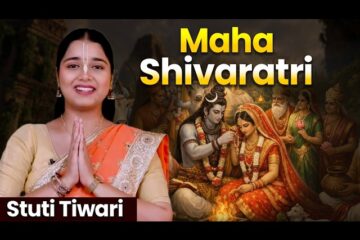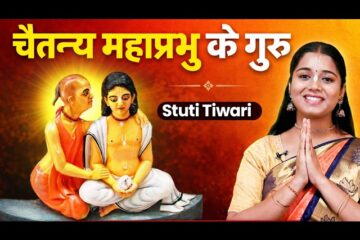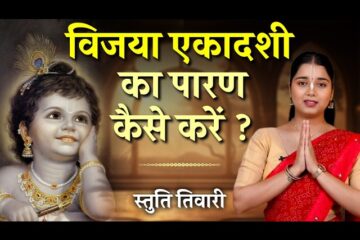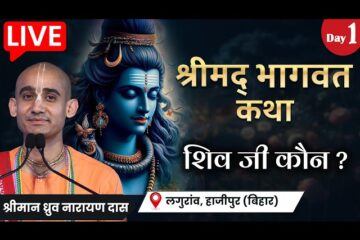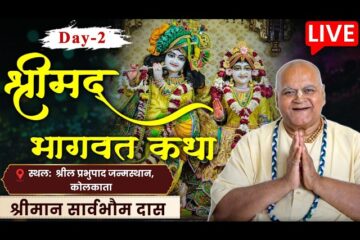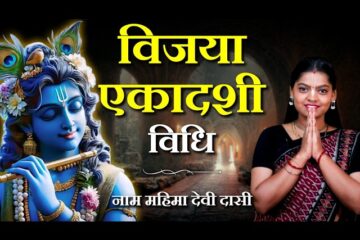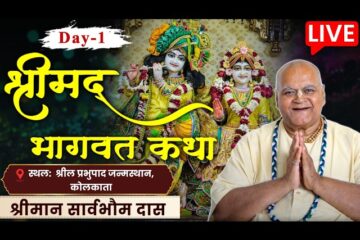Srimad Bhagavatam Canto-02, Chapter-09, Text-09
tasmai sva-lokam bhagavan sabhajitah
sandarsayam asa param na yat-param
vyapeta-sanklesa-vimoha-sadhvasam
sva-drstavadbhir purusair abhistutam
Translation by His Divine Grace A. C. Bhaktivedanta Swami Srila Prabhupada:
The Personality of Godhead, being thus very much satisfied with the penance of Lord Brahma, was pleased to manifest His personal abode, Vaikuntha, the supreme planet above all others. This transcendental abode of the Lord is adored by all self-realized persons freed from all kinds of miseries and fear of illusory existence.
Purport by His Divine Grace A. C. Bhaktivedanta Swami Srila Prabhupada:
The troubles of penance accepted by Lord Brahma were certainly in the line of devotional service (bhakti). Otherwise there was no chance that Vaikuntha or svalokam, the Lord’s personal abodes, would become visible to Brahmaji. The personal abodes of the Lord, known as Vaikunthas, are neither mythical nor material, as conceived by the impersonalists. But realization of the transcendental abodes of the Lord is possible only through devotional service, and thus the devotees enter into such abodes. There is undoubtedly trouble in executing penance. But the trouble accepted in executing bhakti-yoga is transcendental happiness from the very beginning, whereas the trouble of penance in other processes of self-realization (jñana-yoga, dhyana-yoga, etc.), without any Vaikuntha realization, ends in trouble only and nothing more. There is no profit in beating husks without grains. Similarly, there is no profit in executing troublesome penances other than bhakti-yoga for self-realization.
Executing bhakti-yoga is exactly like sitting on the lotus sprouted out of the abdomen of the transcendental Personality of Godhead, for Lord Brahma was seated there. Brahmaji was able to please the Lord, and the Lord was also pleased to show Brahmaji His personal abode. Srila Jiva Gosvami, in the comments of his Krama-sandarbha annotation of Srimad-Bhagavatam, cites quotations from the Brhad-aranyaka Upanisad, Vedic evidence. It is said that Yajñavalkya described the transcendental abode of the Lord to Gargi, and that the abode of the Lord is situated above the highest planet of the universe, namely Brahmaloka. This abode of the Lord, although described in revealed scriptures like the Bhagavad-gita and the Srimad-Bhagavatam, remains only a myth for the less intelligent class of men with a poor fund of knowledge. Herein the word sva-drstavadbhih is very significant. One who has actually realized his self realizes the transcendental form of one’s self. Impersonal realization of self and the Supreme is not complete, because it is just an opposite conception of material personalities. The Personality of Godhead and the personalities of devotees of the Lord are all transcendental; they do not have material bodies. The material body is overcast with five kinds of miserable conditions, namely ignorance, material conception, attachment, hatred and absorption. As long as one is overwhelmed by these five kinds of material miseries, there is no question of entering into the Vaikunthalokas. The impersonal conception of one’s self is just the negation of material personality and is far from the positive existence of personal form. The personal forms of the transcendental abode will be explained in the following verses. Brahmaji also described the highest planet of the Vaikunthaloka as Goloka Vrndavana, where the Lord resides as a cowherd boy keeping transcendental surabhi cows and surrounded by hundreds and thousands of goddesses of fortune.
cintamani-prakara-sadmasu kalpavrksa-
laksavrtesu surabhir abhipalayantam
laksmi-sahasra-sata-sambhrama-sevyamanam
govindam adi-purusam tam aham bhajami
(Brahma-samhita 5.29)
The statement of the Bhagavad-gita, yad gatva na nivartante tad dhama paramam mama, is also confirmed herewith. Param means transcendental Brahman. Therefore, the abode of the Lord is also Brahman, nondifferent from the Supreme Personality of Godhead. The Lord is known as Vaikuntha, and His abode is also known as Vaikuntha. Such Vaikuntha realization and worship can be made possible by transcendental form and sense.
[To know more on this verse, visit – http://www.srimadbhagavatamclass.com/srimad-bhagavatam-canto-02-chapter-09-text-09/]











